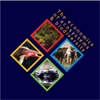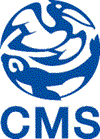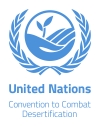If you are organising an event to celebrate the International Year of Biodiversity, we encourage you to share your activities with us and everyone in your country. If you wish to see the information below in your official language, please send us a translation (.doc or .pdf) at [email protected].
If you have videos and photos of your celebrations of the International Year of Biodiversity, please send them to us!
Germany

National Celebrations
Partners

The Economics of Ecosystems and Biodiversity
www.teebweb.org
The Economics of Ecosystems and Biodiversity study is an international initiative to draw attention to the global economic benefits of biodiversity. Its objective is to highlight the growing cost of biodiversity loss and ecosystem degradation and to draw together expertise from the fields of science, economics and policy to enable practical actions moving forward. TEEB aims to assess, communicate and mainstream the urgency of actions through its four deliverables; D0: science and economic foundations, policy costs and costs of inaction, D1: policy opportunities for national and international policy-makers, D2: decision support for local administrators, D3: business risks, opportunities and metrics and D4: citizen and consumer ownership.

CLIMATE 2010, On-line Climate Change Conference
www.climate2010.net
From 1-7 November 2010, the worldwide scientific online climate conference CLIMATE 2010 takes place for the third time, focusing on "Climate Change and the Sustainable Management of Water Resources". CLIMATE 2010 is being organized in cooperation with UNEP, UNESCO, WMO, IPCC, FAO and other world bodies. It represent an opportunity to be part of this worldwide climate-friendly event and use this unique opportunity to present and discuss work with researchers, practitioners, NGOs and the interested public from all around the world.

COLABORA
www.suscon.net
COLABORA was founded 2006 by the agronomist and journalist Bernward Geier, who worked before 18 years as Director of the organic world umbrella organisation IFOAM (International Federation of Organic Agriculture Movements). COLABORA is working internationally and focuses on environment issues, sustainability in all its facets as well as on ecological agri- and food culture. The three main working fields are:
- Communications (film projects, print media, lectures and moderation)
- Events (e.g. conferences, lecture tours of VIP Speakers and cultural events)
- Consultancy (e.g. bio-dynamic project in Greece, organic marketing, One World Award)
Let’s work together

Convention on Migratory Species - Bonn Convention
www.cms.int
The CMS aims to conserve terrestrial, marine and avian migratory species throughout their range. It is an intergovernmental treaty, concluded under the aegis of the United Nations Environment Programme, concerned with the conservation of wildlife and habitats on a global scale. Since the Convention's entry into force, its membership has grown steadily to include over 100 Parties from Africa, Central and South America, Asia, Europe and Oceania. The Convention was signed in 1979 in Bonn (hence the name) and entered into force in 1983.

EuroNatur Foundation
www.euronatur.org
The EuroNatur Foundation is a non-profit organisation located in Germany which stands up for the conservation of the European nature heritage on many different levels, e.g. via special species protection projects, renaturation measures, and site protection as well as political lobbying activities or environmental education. EuroNatur projects are long-term and often cross-border projects aiming not only at the protection of nature, but also at an ecological development of the respective rural areas.

EUROPARC Federation
europarc.org
The Voice of Europe's Protected Areas. We represent over 400 members in 36 countries, who themselves manage the green jewels of Europe's land, sea, mountains, forests, rivers and cultural heritage. Nature knows no boundaries and we therefore facilitate international co-operation in all aspects of protected area management to further and improve and conserve our shared natural inheritance. We endeavour to exchange expertise, experience and best practise as well as collaborate with others to ensure the value and meaning of protected areas is at the heart of Europe.

Germany's Renewable Energy Agency
www.unendlich-viel-energie.de/en/homepage.html
Since 1 May 2008, the information campaign for renewable energy has had an organisational home; this is the Agency for Renewable Energy. The successful "Germany has endless energy" campaign with its patron Prof. Dr. Klaus Töpfer is retained. The "Germany has endless energy" campaign is supported by the Renewable Energies Agency ("Agentur für Erneuerbare Energien e. V"). The agency is supported by companies and associations in the renewable energy industry and the Federal Ministry for Environment, Nature Conservation and Nuclear Safety as well as the Federal Ministry of Food, Agriculture and Consumer Protection. The task of the Renewable Energies Agency is to communicate the most important advantages of a sustainable power supply on the basis of renewable energy. Above all, these are: Security of supply, innovations, increase in employment, export potential, permanent cost-cutting power supply, climate protection and conservation of resources. The Agency for Renewable Energy works throughout Germany, on a cross-party and cross-society basis.

Global Nature Fund
www.globalnature.org
Global Nature Fund is a non-profit, private, independent international foundation for the protection of environment and nature. The headquarters are located in Radolfzell at Lake Constance, Germany. GNF was founded in 1998 with the objective to foster the protection of nature and environment as well as animals. In 1998 the Living Lakes network has been initiated by the GNF foundation, a global network of environmental partner organisations striving for the protection of lakes and wetlands worldwide.

HIT Umwelt- und Naturschutz Stiftungs-GmbH
www.hit-umweltstiftung.de
In Central Europe there is very little space left for wildlife. Here the landscape is dominated by industry and agriculture. Nonetheless, people in this densely populated region have developed a strong environmental consciousness. Many volunteers spend their energy on nature conservation projects. The HIT Environment Fund supports this precious commitment to nature conservation by funding projects in the areas of biotope conservation, species conservation and environmental education. One focus is set on migratory species e.g. by advancing the re-introduction of allis shad, houting and salmon to the River Rhine (Germany, The Netherlands) and the stabilisation of the last large allis shad population in France. Other projects are the renaturation of rivers at the German-Dutch border, which tends to support the critically endangered European eel and the human-led migrations of the Northern Bald Ibis to Italy.

IFOAM - International Federation of Organic Agriculture Movements
www.ifoam.org
Organic Agriculture is practiced by 1.4 million producers on 35 million hectares of land in over 150 countries. It contributes to biodiversity by prohibiting the clearance of primary ecosystems, integrating high levels of natural biodiversity and farm species into the farming system and by avoiding toxic chemical inputs. Ecological rather than chemical intensification protects and enhances ecosystem services to regulate pest and disease, mitigate climate change, optimally cycle nutrients, build soils and retain soil water.
As the umbrella organization for the international Organic Agriculture movement and an observer to the Convention on Biological Diversity, IFOAM is providing input into the UNEP Economics of Ecosystems and Biodiversity report for local policy makers. IFOAM is also a participating partner in this year’s biodiversity focused SuSCon conference, developing new material on the effective role of Organic Agriculture in mitigating biodiversity loss and will hold a series of events around the globe to mark the international day of biodiversity - including the launch of position papers on seed and smallholder farms.
Biodiversity leaflet - en - es - fr - zh Biodiversity brochure - en

International Forestry Students’ Association
www.ifsa.net
The International Forestry Students’ Association (IFSA) is a non political and not for profit organisation of tertiary level forestry students around the world. IFSA is dedicated to global cooperation among students of forest sciences in order to broaden knowledge and understanding to achieve a sustainable future for the world’s forests. The association provides a platform for students to enrich their formal education, promote cultural understanding and gain practical experience with global perspectives. Membership is comprised by currently 78 Local Committees of students in 48 countries.

The Secretariat of the African-Eurasian Migratory Waterbird Agreement (AEWA)
www.unep-aewa.org
AEWA is an independent intergovernmental treaty concluded under the aegis of the Convention of Migratory Species (CMS) focusing on the conservation of migratory waterbirds. AEWA works towards halting the loss of migratory waterbird species and their habitats within its Agreement Area across Europe, parts of Asia and Canada, the Middle East and Africa.
The Secretariat of the African-Eurasian Migratory Waterbird Agreement (AEWA) takes the lead in organizing World Migratory Bird Day, which is a global initiative devoted to celebrating migratory birds and for promoting their conservation worldwide. This year’s theme for the event is “Save migratory birds in crisis – every species counts!” which is closely linked to the International Year of Biodiversity (IYB).

Tiere-MN.de
www.tiere-mn.de
Tiere-MN.de is a lexicon with more than 730 mammals, birds and reptiles. The texts from the animals are with many pictures and systematic arranged.

United Nations Convention to Combat Desertification
www.unccd.int
The Convention offers new hope in the struggle against desertification. Over the past two decades, the problem of land degradation in dryland regions has continued to worsen. The Convention promotes a fresh new approach to managing dryland ecosystems and -- just as important -- to managing development aid flows.

United Nations Framework Convention on Climate Change
www.unfccc.int
Over a decade ago, most countries joined an international treaty -- the United Nations Framework Convention on Climate Change (UNFCCC) -- to begin to consider what can be done to reduce global warming and to cope with whatever temperature increases are inevitable. More recently, a number of nations approved an addition to the treaty: the Kyoto Protocol, which has more powerful (and legally binding) measures.

World Future Council
www.worldfuturecouncil.org
The World Future Council (WFC) consists of up to 50 respected personalities from all five continents. They come from governments, parliaments, the arts, civil society, science and the business world. Together they form a voice for the rights of future generations. The World Future Council is a charitable foundation dependent on donations. The World Future Council Foundation is a registered charity in Hamburg, Germany where its head office is located. Additionally, we have staff working in Brussels, London, Washington and Addis Ababa. The World Future Council works to safeguard the rights of future generations. Our aim is to pass on a healthy planet and just societies to our children and grandchildren.
Future Policy Award Ceremony 2010 Report: Future Policy Award 2010 (pdf)
|